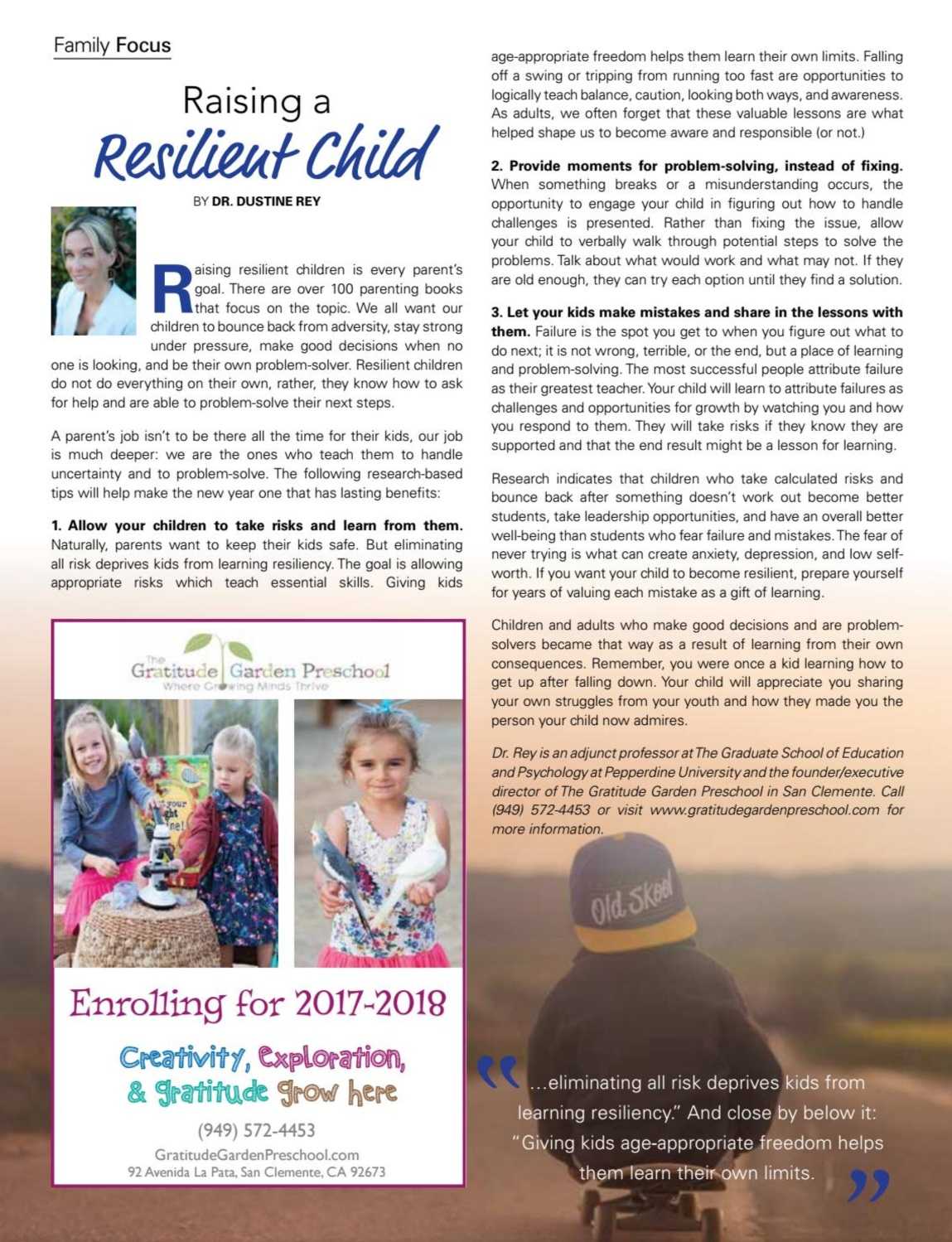Raising resilient children is every parent’s goal. There are over 100 parenting books that focus on the topic. We all want our children to bounce back from adversity, stay strong under pressure, make good decisions when no one is looking, and be their own problem-solver. Resilient children do not do everything on their own, rather, they know how to ask for help and are able to problem-solve their next steps.
A parent’s job isn’t to be there all the time for their kids, our job is much deeper, we are the ones who teach them to handle uncertainty and to problem-solve. The following research-based tips will help make the new year one that has lasting benefits:
- Allow your children to take risks and learn from them.
Naturally, parents want to keep their kids safe. But eliminating all risk deprives kids of learning resiliency. The goal is allowing appropriate risks which teach essential skills. Giving kids age-appropriate freedom helps them learn their own limits. Falling off a swing or tripping from running too fast are opportunities to logically teach balance, caution, looking both ways, and awareness. As adults, we often forget that these valuable lessons are what helped to shape us to become aware and responsible or not.
- Provide moments for problem-solving instead of fixing.
When something breaks, or a misunderstanding occurs, the opportunity to engage your child in figuring out how to can handle challenges is presented. Rather than fixing the issue, allow your child to verbally walk through potential steps to solve the problems. Talk about what would work and what may not. If they are old enough, they can try each option until they find a solution.
- Let your kids make mistakes and share in the lessons with them.
Failure is the spot you get to when you figure out what to do next; it is not wrong, terrible, or the end. It is a place of learning and problem-solving. The most successful people attribute failure as their greatest teacher. Your child will learn to attribute failures as challenges and opportunities for growth by watching you and how you respond to them. They will take risks if they know they are supported and that the end result might be a lesson for learning.
Research indicates that children who take calculated risks and bounce back after something doesn’t work out become better students, take leadership opportunities, and have over all better well-being than students who fear failure and mistakes. The fear of never trying is what can create anxiety, depression, and low self- worth. If you want your child to become resilient, prepare yourself for years of valuing each mistake as a gift of learning.
Children and adults who make good decisions and are problem-solvers became that way as a result of learning from their own consequences. Remember, you were once a kid learning how to get up after falling down too. Your child will appreciate you sharing your own struggles from your youth and how they made you the person your child now admires.

